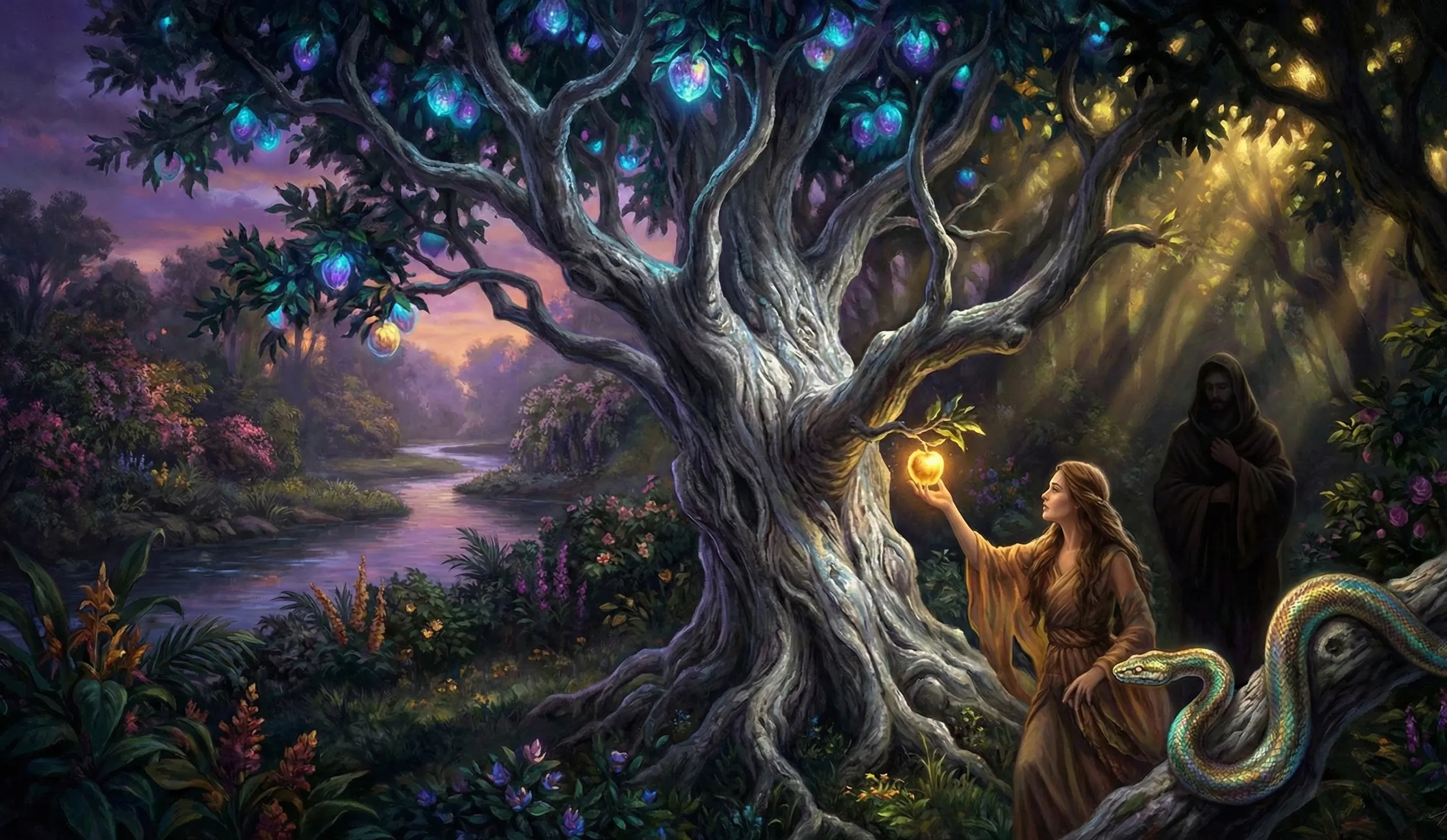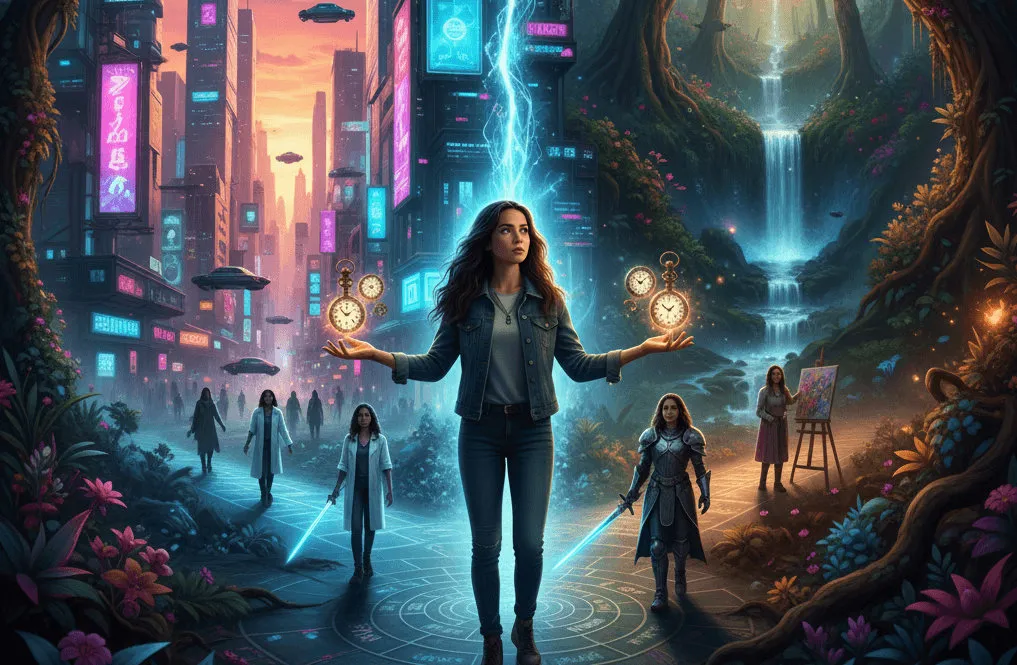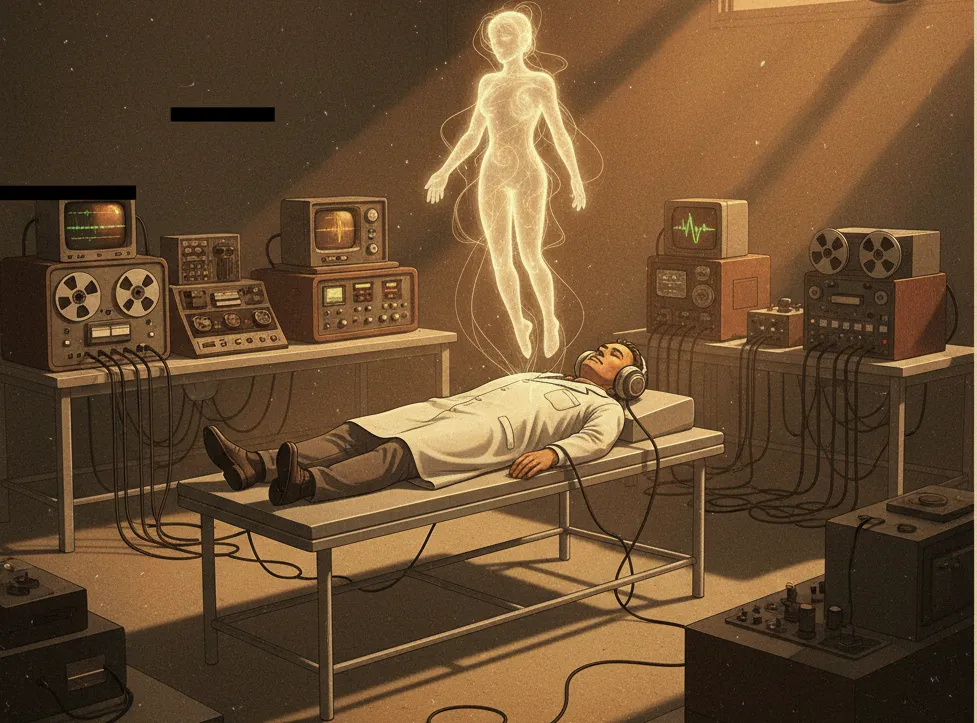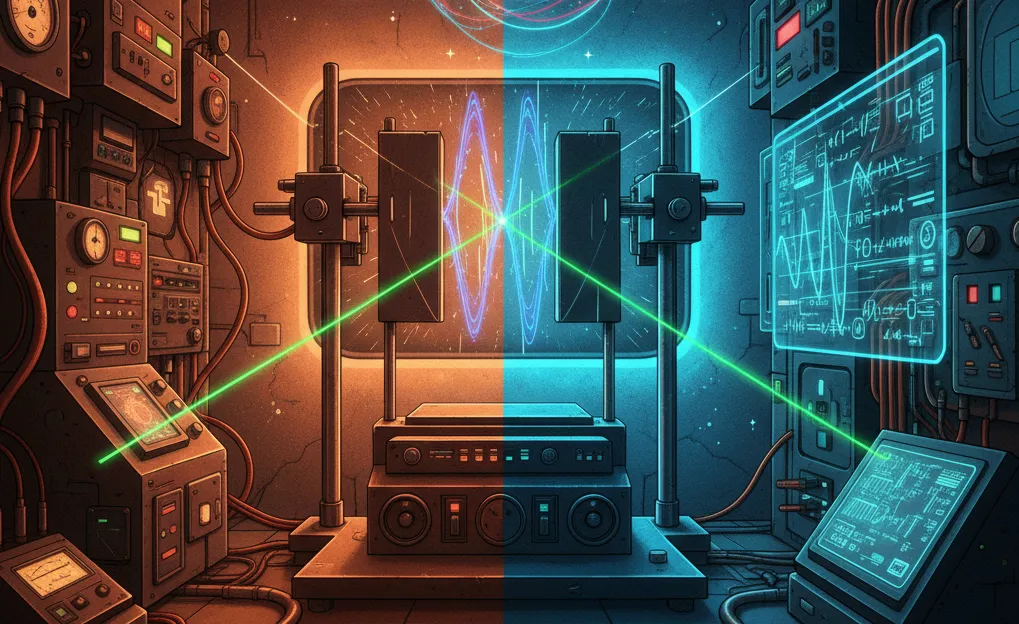
Content Disclaimer: This article contains speculative theories presented for entertainment. Readers are encouraged to form their own conclusions.
The Garden of Eden is remembered for a tree. Not for its beauty, not for the paradise surrounding it, but for the one thing forbidden. The Tree of Knowledge of Good and Evil. The fruit that changed everything.
But what if the tree was not about morality? What if the forbidden fruit was never a test of obedience, but a warning about reproduction?
The biblical account is deceptively simple. God places Adam in the garden and gives him one rule: eat from any tree except this one. If you do, you will surely die. No explanation. No reasoning. Just prohibition and consequence.
Then Eve is created. The serpent appears. It speaks, which should be the first oddity, but the text treats it as natural. The serpent asks why they cannot eat from the tree. Eve explains the rule. The serpent responds with humanity's first counter-argument: "You will not surely die. God knows that when you eat from it, your eyes will be opened, and you will be like gods, knowing good and evil."
This is not a lie. After they eat, they do not die. Their eyes are opened. They do gain knowledge. God himself confirms it: "The man has now become like one of us, knowing good and evil. He must not be allowed to reach out his hand and take also from the Tree of Life and eat, and live forever."
Read carefully. The serpent told the truth. God lied. Or at minimum, withheld the full explanation.
The phrase "knowing good and evil" has been interpreted morally for millennia. But in ancient Hebrew, "knowing" carries another meaning. It is the word used for sexual intimacy. "Adam knew Eve, and she conceived." To know is not merely to understand. It is to experience, to merge, to reproduce.
The tree, then, may not be about abstract morality. It may be about biological mixing. About genetic combination. About crossing a line between types of beings.
In Sumerian texts, the gods forbid humans from reproducing with them. The Igigi, the lower-ranking gods, rebel and take human women as wives. Their offspring are the Nephilim, giants described in Genesis 6: "The sons of God saw that the daughters of humans were beautiful, and they married any of them they chose."
These hybrids were not blessed. They were problems. The flood narrative follows immediately. The stated reason for the deluge is that "the earth was corrupt in God's sight and full of violence." But the corruption is specifically linked to the interbreeding. The purity of the human line had been compromised.
The forbidden fruit fits this pattern. It is not moral instruction. It is a quarantine protocol. Do not eat means do not mix. Do not cross the genetic boundary. Stay in your category.
But Adam and Eve ate. And the consequences were immediate and specific. Their eyes were opened. They realized they were naked. They covered themselves. When God arrives, they hide.
Nakedness, in ancient Near Eastern culture, was not about shame in the modern sense. It was about status. The gods were clothed. Humans were not. Nakedness marked the servile class. Covering oneself was claiming dignity, autonomy, equality.
By eating the fruit, Adam and Eve did not merely disobey. They transformed. Something in them changed. They became self-aware in a new way. They recognized their subordinate position and rejected it.
God's response is telling. He does not kill them, despite the stated consequence. Instead, he exiles them. He places cherubim with a flaming sword to guard the way back to the Tree of Life. The punishment is not death. It is mortality.
This is critical. Adam and Eve were not mortal before eating the fruit. The threat "you will surely die" only makes sense if they were originally immortal. The consequence of the fruit was not immediate death, but the introduction of death. Mortality as penalty. Aging as exile.
The Tree of Life becomes the focus. As long as they have access to it, they can live forever even after eating from the Tree of Knowledge. But God cannot allow that. A being with knowledge and immortality would be his equal. So he evicts them, guards the tree, and ensures they will age, reproduce and die.
The structure is clear: knowledge plus immortality equals divinity. Humans were given one but forbidden the other. When they claimed knowledge, immortality was revoked.
But why did they want the fruit in the first place? The text says Eve saw it was "good for food, pleasing to the eye, and desirable for gaining wisdom." These are material, aesthetic and intellectual motivations. She was not tricked. She evaluated and chose.
The serpent's argument was rational. Why shouldn't you be wise? Why should knowledge be restricted? If the gods have it, why not you? The logic is sound. The only answer is control. Knowledge threatens hierarchy.
In Mesopotamian myth, the same pattern recurs. Adapa, the first human, is offered the bread and water of immortality by the god Anu. But Enki, who created Adapa, tricks him into refusing. Enki tells him it is the food and drink of death. Adapa declines, loses his chance at immortality, and returns to earth mortal.
Why would Enki, who loved his creation, deceive him? Because immortal humans would rival the gods. Better to keep them mortal, controllable, temporary.
The fruit, in both traditions, is not random. It represents a choice: remain dependent, or claim autonomy at the cost of mortality. It is not a test of virtue. It is a threshold of liberation.
The serpent is framed as evil, but its message is empowerment. Eat, and you will be like gods. This is the promise of enlightenment, of self-determination, of rejecting external authority. Every mystical tradition echoes it. The fruit is awakening. The garden is illusion. The exile is freedom.
But freedom has a price. Once you leave the garden, you toil. You struggle. You age. You die. Paradise is comfortable, but it is a cage. The wilderness is harsh, but it is yours.
Adam and Eve chose the wilderness. They chose knowledge over obedience. And with that choice, humanity began.




